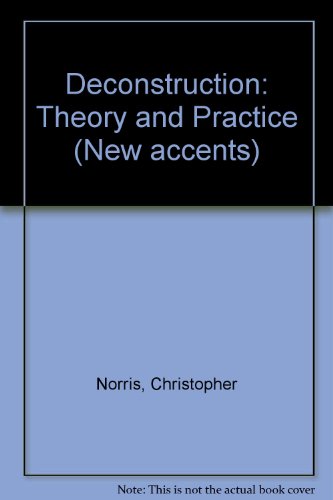New Accents
1 total work
Since first appearing in 1982 this book has been acclaimed as by far the most readable, concise and authoritative text of its kind. While in no way oversimplifying the complexities of the subject, or understating the challenge it presents, Norris's book sets out to make deconstruction more accessible to the open-minded reader. For this revised edition the author has provided a substantial postscript which looks back over the past ten years of critical debate and seeks to correct some prevalent misunderstandings. The volume also contains an updated bibliography - among the most extensive of its kind - giving details of more than two hundred books published during that period. Some critics have dismissed deconstruction as a harmless academic game; others have denounced it as a terrorist weapon or a discourse of last-ditch nihilist unreason. As Norris demonstrates, both responses are equally wide of the mark. Focusing on Derrida's major texts, and offers a detailed commentary on his readings of Plato, Rousseau, Nietzsche, Husserl, Saussure, Levi-Strauss, J.L.
Austin and others, this book brings out the extraordinary subtlety and force that have characterized his project from the outset. Norris also examines the work of those North American critics - Paul de Man, Geoffrey Hartman, J. Hillis Miller and Harold Bloom - who in their own prolonged efforts to move beyond the old' New Criticism have variously registered the impact of Derrida's thought.
Austin and others, this book brings out the extraordinary subtlety and force that have characterized his project from the outset. Norris also examines the work of those North American critics - Paul de Man, Geoffrey Hartman, J. Hillis Miller and Harold Bloom - who in their own prolonged efforts to move beyond the old' New Criticism have variously registered the impact of Derrida's thought.
